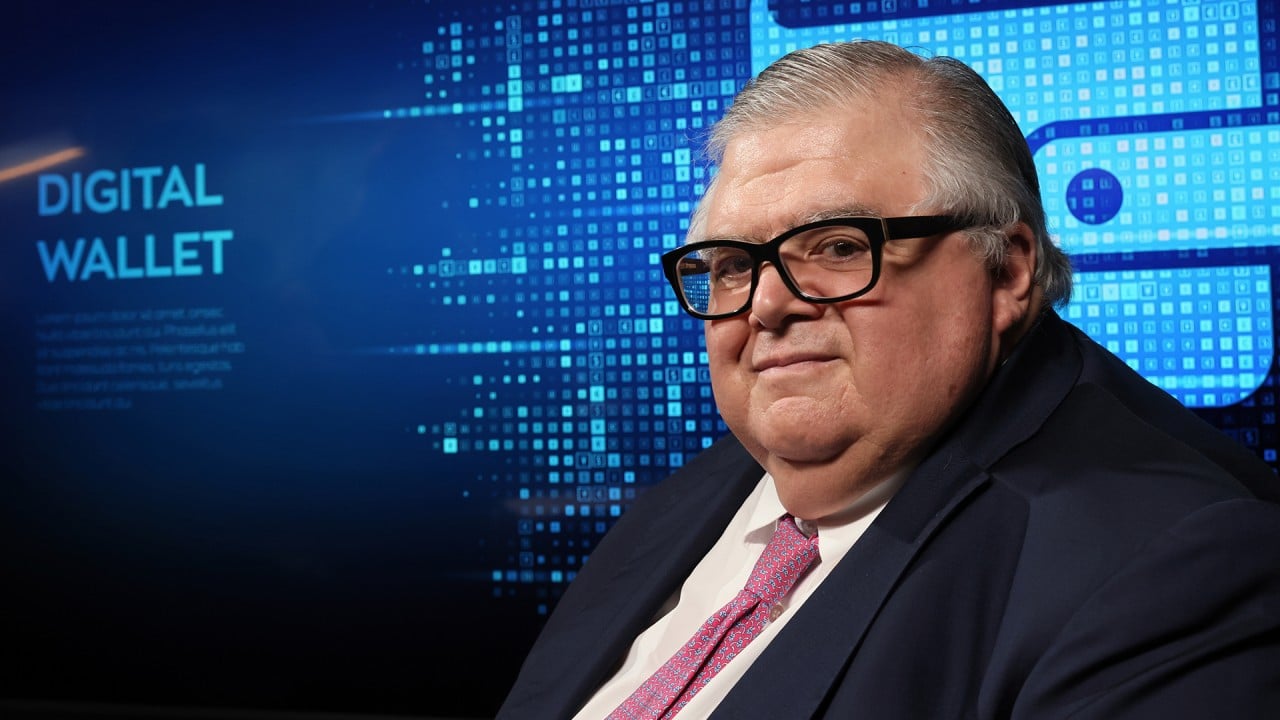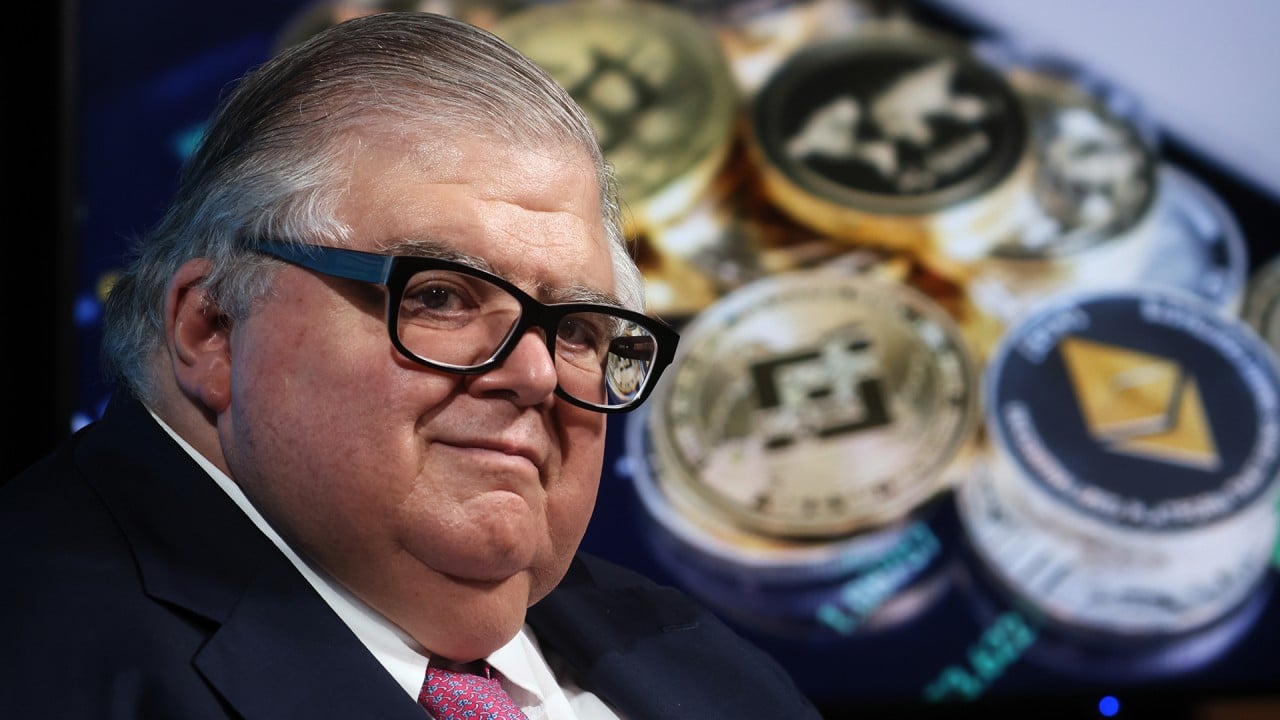
07:32
BIS chief Carstens: High interest rates to stay even if a US recession might be 'avoided' in 2023
Exclusive | The US may avoid a recession even as Fed is expected to increase rates for the seventh time, BIS head says
- The general manager of BIS believes the US can avoid a recession, but six out of 10 institutional investors said they see the slump as inevitable
- The Fed, European Central Bank and Bank of England are expected to increase their key rates by 50 basis points in the closing days of 2022, according to DWS
The US may be able to avoid a recession as recent data on jobs and economic growth was better than expected, easing concerns about the negative impact of interest rate hikes, according to the head of the global central bank, speaking ahead of several key policy meetings this week.
Agustin Carstens, general manager of the Bank for International Settlements (BIS), said the US and many central banks have made the right move by increasing interest rates to control runaway inflation, but he played down concerns over a recession.
“The most recent figures on the [US] job market and economic activity have been better than expected [and] surprised on the upside,” Carstens said in an interview with the South China Morning Post in Hong Kong on December 6. “A few months ago, I probably was a little more concerned about the impact of higher interest rates.”
The US reported stronger-than-expected employment data for November, with companies adding 263,000 workers and hourly wages rising at an annual rate of 5.1 per cent.
High interest rates may keep the bull from 2023 global home markets
“Without [being] completely in the zone where we can declare victory, [it’s] so far so good,” he said. “There is a fair chance that a recession might be avoided. It is in the realm of possibilities.”
Carstens is a Mexican economist who has served as general manager of BIS, known as “the bank for central banks”, since 2017. He was also governor of the Bank of Mexico for seven years. Carstens and Christine Lagarde were the two final candidates for managing director of the International Monetary Fund, which eventually went to the latter.
Some investors, however, were not as optimistic as Carstens. Six out of 10 institutional investors who manage a combined US$20.1 trillion in assets globally believe a US recession is inevitable, according to a December 8 survey published by Paris-based Natixis Investment Managers.
All three major Western central banks – the Federal Reserve, the European Central Bank and Bank of England – will announce their final policy decisions for the year this coming week, with German asset manager DWS expecting all of them to increase key rates by 50 basis points.

“The US has an overheating economy and its inflation is too high. The Fed has no other choice but to hike interest rates,” Helen Qiao, chief Greater China economist at BofA Global Research, the research arm of Bank of America, said in an interview last week.
The expected 50-basis points increase by the Fed on Thursday local time would be its seventh round of policy tightening this year. Still, it would represent a moderation from the preceding four successive 75-basis point increases to tame inflation at a four-decade high.
Consumer prices in the US rose 7.7 per cent in October from a year earlier, compared with 8.2 per cent in September, 8.3 per cent in August and 8.5 per cent in July. Prices climbed 9.1 per cent in June, the most since November 1981.
Carstens said the US and other global central banks have had to increase their rates to temper inflation at an early stage, even though some countries are experiencing an economic slowdown. US interest rates are likely to peak soon, but are unlikely to go down again any time soon.
“We will have to face a period of relatively high interest rates for some time,” Carstens said. “If we allow inflation to [take] root, and to be ingrained in the minds of the people, it will be far more difficult to bring down inflation later, and probably will require much tougher measures from the monetary point of view.”
Hong Kong, which has pegged its local currency with the US dollar since 1983, follows US rate increases in lockstep under the city’s Linked Exchange Rate System, even as the city enters a recession. Hong Kong’s gross domestic product (GDP) fell 3.3 per cent year on year in the first nine months of 2022.
If the Fed increase comes as expected, the Hong Kong Monetary Authority (HKMA) on Thursday will increase its base rate to 4.75 per cent from 4.25 per cent. It would be the seventh increase over nine months, reaching a fresh 14-year high, following the US that would have raised the Fed funds target rate by the same quantum to between 4.25 and 4.5 per cent.

Hong Kong lenders are expected to increase their prime rates by another 25 basis points if the Fed and HKMA raise base rates on Thursday, said Tommy Ong, managing director of T.O. & Associates Consultancy. It would be the third time commercial banks raised the key lending rate over the past three months, after increasing 25 basis points in November and 12.5 basis points in September.
“Hong Kong’s interbank interest rate has risen to a high level. The banks have to increase the prime rate as their cost of funding has increased,” Ong said.
The one-month interbank offered rate (Hibor) has risen to 4.89 per cent, three-month Hibor has jumped to 5.399 per cent, while the 12-month rate is now at 5.78 per cent. All three are at their highest levels since late 2008.


